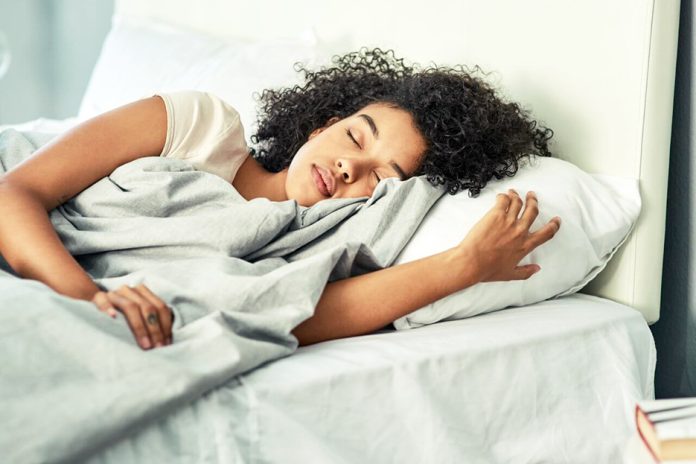Ever wonder why some people seem to always get a good night’s rest while you toss and turn for hours, or wake up again and again? Your sleep hygiene may be the problem. Good sleep hygiene is a combination of sleeping conditions and lifestyle habits that help you get consistent, uninterrupted sleep.
History
While the term sleep hygiene was first introduced in 1939 by Nathaniel Kleitman, a book published in 1977 by psychologist Peter Hauri introduced the concept within the context of modern sleep medicine.
In this book Hauri outlined a list of behavioral rules intended to promote improved sleep. Similar concepts are credited to Paolo Mantegazza who published a related original book in 1864. The 1990 publication of the International Classification of Sleep Disorders (ICSD) introduced the diagnostic category Inadequate Sleep Hygiene.
Inadequate sleep hygiene was a subclassification of Chronic Insomnia Disorder in the ICSD-II published in 2005; it was removed from the 2014 ICSD-III along with two other classifications. The term “chronic insomnia disorder” is used for all subtypes of chronic insomnia and inadequate sleep hygiene is no longer required to diagnose any sleep disorder, including insomnia and insufficient sleep syndrome.
Sleep hygiene recommendations
Specific sleep hygiene recommendations have changed over time. For example, advice to simply avoid sleeping pills was included in early sets of recommendations, but as more drugs to help with sleep have been introduced, recommendations concerning their use have become more complex.
Sleep hygiene is a behavioral and environmental practice developed in the late 1970s as a method to help people with mild to moderate insomnia. Clinicians assess the sleep hygiene of people with insomnia and other conditions, such as depression, and offer recommendations based on the assessment.
Sleep hygiene recommendations include: establishing a regular sleep schedule; using naps with care; not exercising physically or mentally too close to bedtime; limiting worry; limiting exposure to light in the hours before sleep; getting out of bed if sleep does not come; not using bed for anything but sleep and sex; avoiding alcohol as well as nicotine, caffeine, and other stimulants in the hours before bedtime; and having a peaceful, comfortable and dark sleep environment.
Benefits of Good Sleep Hygiene
Good sleep hygiene can help you in a lot of ways. When you get enough sleep — experts recommend 7 to 8 hours a night — you may:
- Get sick less often
- Keep a healthy weight
- Head off health problems like diabetes and heart disease
- Feel happier and less stressed
- Be able to think more clearly during the day
Think about making changes to your sleep routine if you have trouble falling asleep, if you can’t stay asleep, or if you often feel sleepy during the day. These may be signs of bad sleep hygiene.
How to Have Good Sleep Hygiene
You can take simple steps to break bad habits and get better sleep.
- Be consistent. It can be easy to stay up late watching your favorite team play a game or to sleep in on Saturdays and Sundays. There are some exceptions, but you’ll get better sleep by going to bed at the same time each night and getting up at the same time in the morning. This gets your body into a routine that will help you feel sleepy at the same time each night and wake up refreshed in the morning.
- Keep your bedroom quiet and dark, and at a good temperature for sleeping. It depends on the person, but many doctors recommend 60 to 67 degrees F.
- Make your bedroom relaxing, which for you may mean clean and clutter-free.
- Try a wind-down routine before bed, like meditation, yoga, or stretching.
- Limit naps during the day.
- Make your bed a sleep-only zone. Don’t read or watch TV there.
- Don’t bring electronic devices into the bedroom. If your iPad, laptop, phone, and TV aren’t in the room, you’ll be less tempted to check emails or texts right before you go to bed, or stay up late bingeing a show. They also give off blue light that might affect your body’s melatonin production.
- Don’t eat large, heavy meals before bed. Limit caffeine and alcohol.
- Exercise during the day. Moving — whether it’s a walk at lunch or a cycling class before your family wakes up — can help you fall asleep more easily.
When to See Your Doctor
If you’ve made changes and they don’t seem to be helping, talk to your doctor. You may have a sleep disorder, like sleep apnea, that needs medical treatment.
Your doctor might also recommend:
- Medication like melatonin, which is made by the body and helps promote sleep
- Light therapy
- Cognitive behavioral therapy, in which a therapist can help you identify and change negative thoughts and behaviors around sleep.
Source: webmd.com









